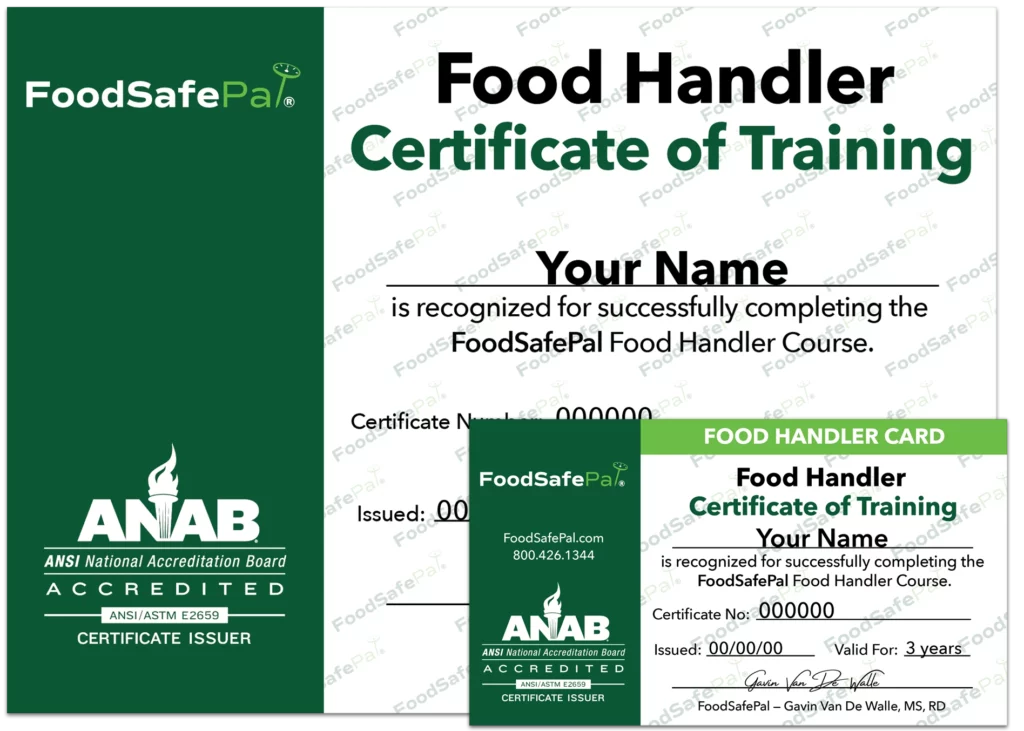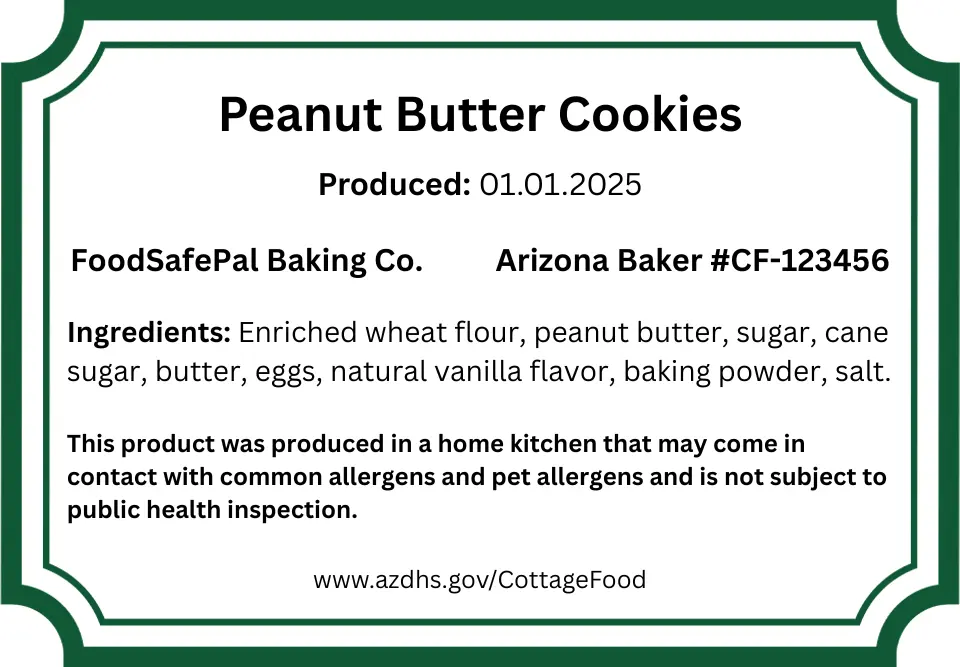Arizona Cottage Food Law: Food Safety Training Requirements
Cottage — or homemade — food businesses have increased in popularity as more people want to know where their food comes from and who makes it.
Each state has its own regulations for cottage foods, including regulations related to required food safety training.
This article discusses the Arizona cottage food law, and whether you need food safety training to sell homemade food.

Arizona cottage food program
Arizona’s cottage food program allows you to make most homemade foods and sell them to people in-person or online, but only to addresses in Arizona.
Here is a list of approved cottage foods:
- baked goods (breads, cookies, cakes, pies)
- jams, jellies, and preserves
- dry goods (granola, spices, mixes)
- candy and chocolates
- pickled and acidified foods (salsa)
- freeze dried foods
Arizona also allows you to make and sell items that require time or temperature controls — known a TCS foods — to keep them safe, such as certain desserts, cut fruits and vegetables, and even products containing meats or poultry.
Conversely, Arizona’s cottage food law prohibits foods such as:
- products with alcohol (if it’s meant to intoxicate)
- raw milk or products made with raw milk
- fish and shellfish
- cannabis-infused products
You also cannot make and sell dog treats or pet foods as animal food is considered commercial feed and regulated by the Arizona Department of Agriculture.
Because Arizona doesn’t regulate retail food establishments such as restaurants like they do cottage food businesses, Arizona will not inspect your home kitchen.
Still, it’s your responsibility to ensure you follow the proper production guidelines to reduce the risk of spreading foodborne pathogens to your customers.
Summary
Under the Arizona cottage food program, you can make and sell most homemade foods, including those that require time and temperature controls.
Do you need food safety training to sell homemade food in Arizona?
Arizona requires that you complete a food safety course before you can register for the state’s cottage food program to sell your homemade foods, no matter your county of residence.
This training must be an ANSI-National Accreditation Board (ANAB)-accredited food handlers course, such as the one offered by FoodSafePal (1).
Earn Your Food Handlers Card + Certificate to Sell Cottage Foods
Finish in 90 Minutes. Meets Arizona’s Cottage Food Law.

ANAB-accredited food handler training is the same training required for food employees at food establishments in certain Arizona counties.
You can complete FoodSafePal’s ANAB-accredited online food handler program online in just 90 minutes.
The course covers important food safety principles, such as:
- cross-contamination and cross-contact prevention
- good personal hygiene and handwashing
- cleaning and sanitizing procedures
After the course, you must demonstrate your knowledge of these topics by passing a multiple-choice test. If you don’t pass the first time, you can retake it for free.
After you pass, you’re issued a food handler certificate and card that you will need for registering your cottage food business.
Your food handler certificate and card will be good for three years from the date you earn it.
As part of the application process to register your cottage food business, you’re required to upload a copy of your food handler certificate, so don’t forget to save a PDF copy after you pass.
You will also need to enter the expiration date of the food handler card, which will be three years from the date you passed.

You must keep your certificate active while in business by retaking the course every three years to remain complaint with Arizona’s cottage food program.
Summary
Before you can produce and sell cottage foods, Arizona requires that you complete an ANAB-accredited food handler course, such as FoodSafePal’s.
Labeling requirements
The only thing you need before you can submit your application to register for Arizona’s cottage food program is a copy of a food handler certificate from an ANAB-accredited provider, like FoodSafePal.
However, it’s your responsibility to ensure you’re following the labeling requirements for your products.
Arizona requires that you attach a label with the following information to each product:
- your name and business name
- registration number (provided after your application is approved)
- list of ingredients (best practice is to list in descending order of predominance)
- the product’s production date
- the statement: “This product was produced in a home kitchen that may come in contact with common food allergens and pet allergens and is not subject to public health inspection.”
- The department’s website: www.azdhs.gov/cottagefood

If your cottage food product was made in a facility for individuals with developmental disabilities, you must also include the following statement on the label, “This product was made in a facility by individuals with developmental disabilities.”
Properly labeling your homemade goods allows you to sell your homemade goods from retail food establishments or third party vendors, but the products cannot be TCS.
Summary
Arizona’s cottage food law requires that you attach a label to each food product. The label must include certain information, such as your name, registration number, a list of ingredients, and the product’s production date.
The bottom line
Under the Arizona cottage food program, you can sell most homemade foods, including perishable foods, directly to people within the state.
However, before you can register for the Arizona cottage food program, you must complete an ANAB-accredited food handler course, such as FoodSafePal’s. Proof of completion is required to register your business with the state’s cottage food program.
Earn Your Food Handlers Card + Certificate to Sell Cottage Foods
Finish in 90 Minutes. Meets Arizona’s Cottage Food Law.

Arizona requires that each food product have an attached label that discloses certain information, such as who made the product and when and a list of the ingredients it contains.
You can register for a new cottage food business in Arizona here.






